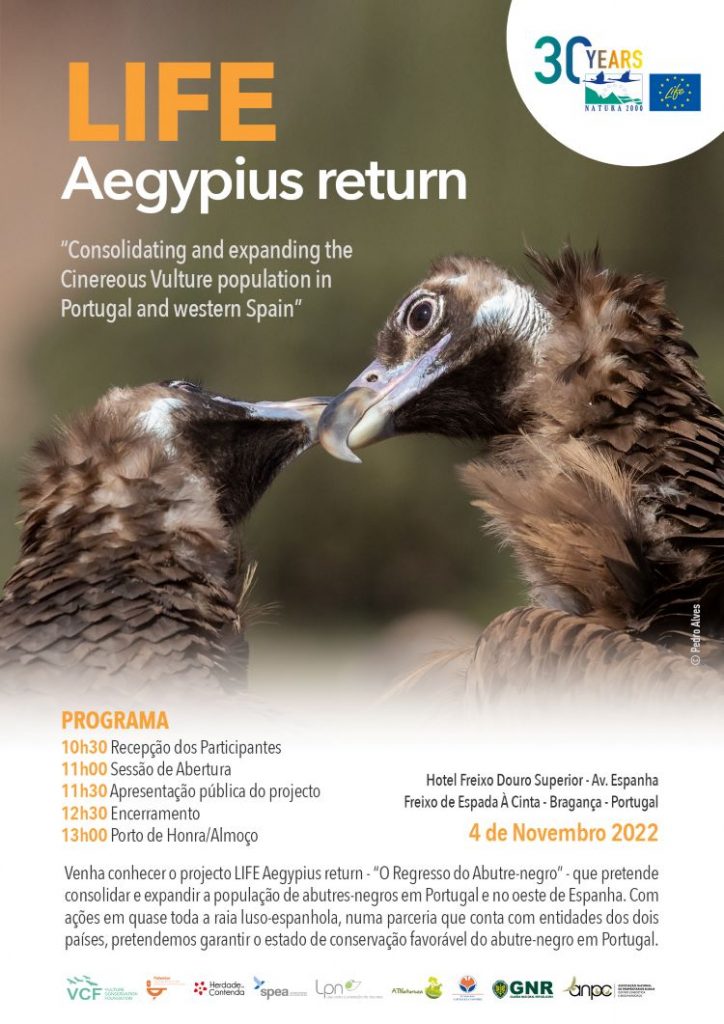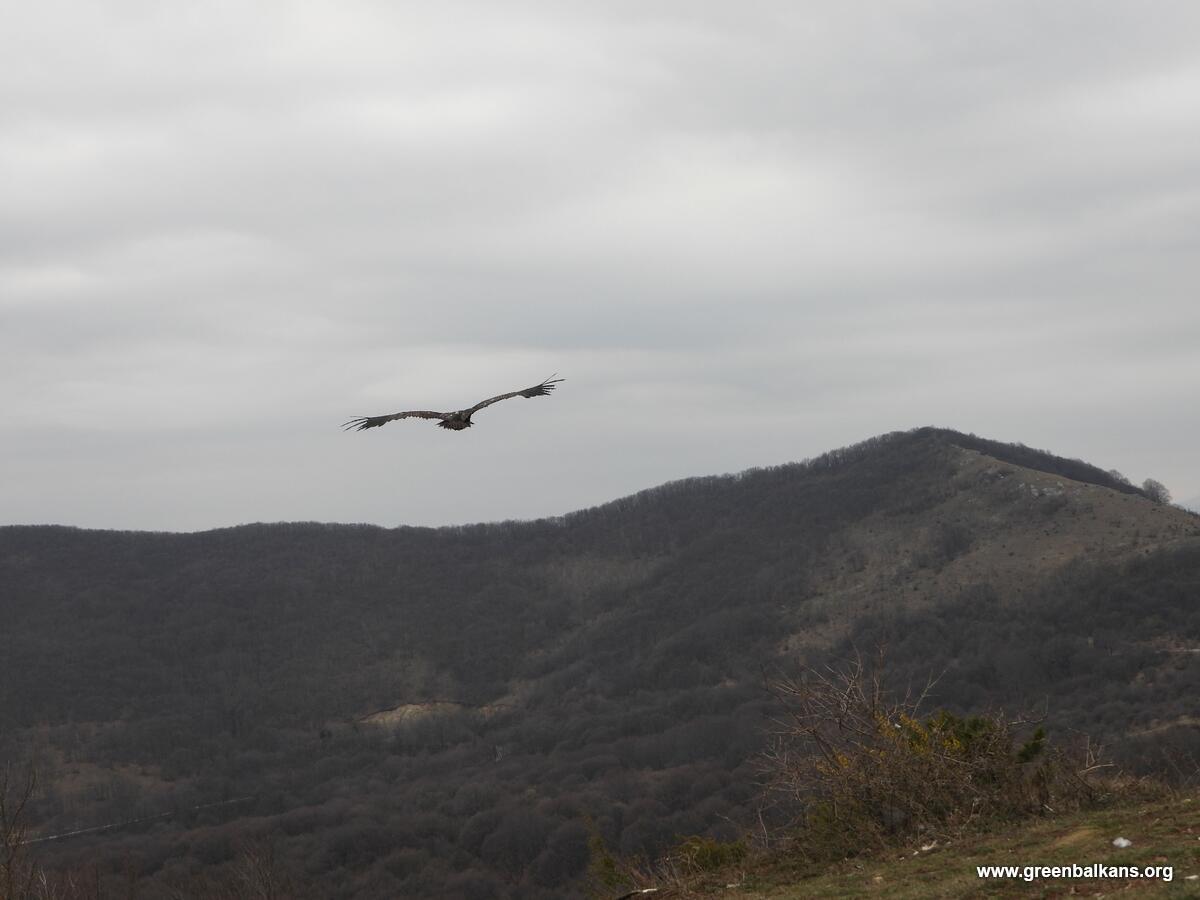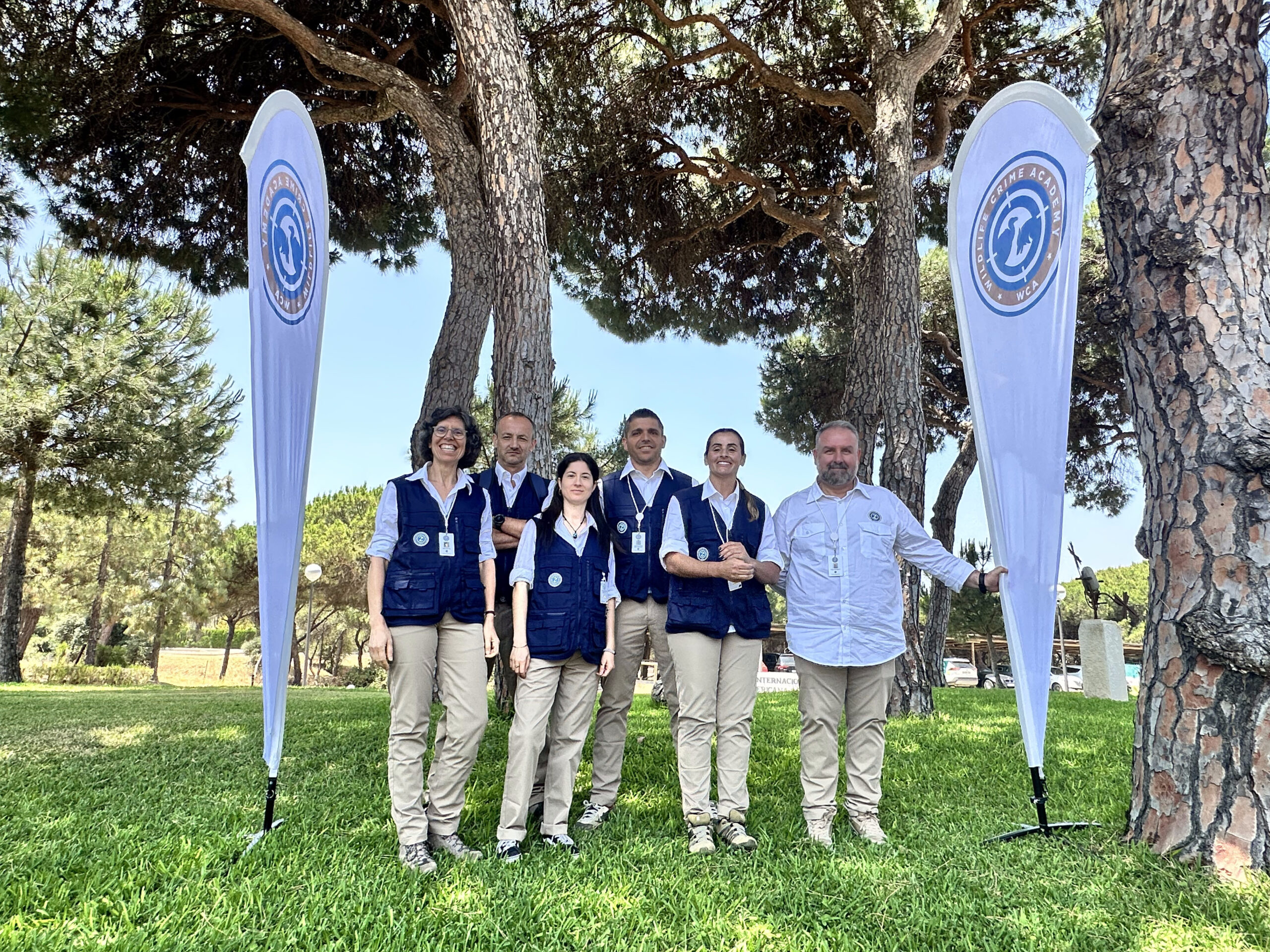Come and discover our newly launched project LIFE Aegypius return, which aims to consolidate and expand the Cinereous Vulture population in Portugal and western Spain!
Everyone is welcome to join us for the public presentation session of LIFE Aegypius return to learn how the project will strive to improve the conservation status of the Cinereous Vulture in Portugal.
The event will take place on Friday, 4 November 2022, at 10:30 am WET at the Hotel Freixo Douro Superior in Freixo de Espada à Cinta.
Registration
Participation at the event is free of charge, but registration is compulsory.
If you want to attend the project’s public presentation session, please fill in the online form by Wednesday, 2 November 2022, to confirm your attendance.
Programme
The public presentation session aims to connect the public with the conservation of the species and discuss the project’s actions and objectives. More information about the event is available in the programme seen below.

The Cinereous Vulture in Portugal
The Cinereous Vulture (Aegypius monachus) was driven to extinction as a breeding species in Portugal in the early 1970s, primarily due to the widespread use of poison baits. However, the species remained present in the central and southern regions of the Portuguese-Spanish border, and individuals started to regularly visit Portugal to forage in recent years, thanks to the increasing population in Spain.
Only in 2010 did the Cinereous Vulture return to nest in the central part of the country, when the first pair bred in the Tejo Internacional Natural Park. Two years later, in 2012, the first nesting pair was registered in the International Douro Natural Park and, in 2019, the second. This species only has one chick per breeding season, which makes it even more vulnerable in terms of its reproductive success.
The fragility of the breeding colonies, combined with the extremely reduced population and the many threats the species face, makes it necessary to take immediate action. Here is where the LIFE Aegypius return project comes in to implement targeted conservation actions that will help secure the future of the Cinereous Vulture in Portugal.
LIFE Aegypius return actions and objectives
With actions in almost the entire Portuguese-Spanish border, the LIFE Aegypius return project strives to achieve a favourable conservation status for the Cinereous Vulture in Portugal.
In the short term, the project team will focus on improving its habitat and feeding conditions, mitigating threats and developing national capacities to double the Cinereous Vulture breeding population in Portugal and increase its breeding success. The ultimate goal is to improve its conservation status by the end of the project, changing it from Critically Endangered to Endangered in Portugal by consolidating, enhancing and accelerating the ongoing natural recolonization of the species.
The partnership
This LIFE Aegypius return project, funded by the European Union’s LIFE Programme, is built on the extensive collaboration of nine international and local partners. It is led by the Vulture Conservation Foundation in collaboration with Palombar – Conservação da Natureza e do Património Rural, Herdade da Contenda, Sociedade Portuguesa para o Estudo das Aves, Liga para a Proteção da Natureza, Associação Transumância e Natureza, Fundación Naturaleza y Hombre, Guarda Nacional Republicana e Associação Nacional de Proprietários Rurais and Gestão Cinegética e Biodiversidade.




